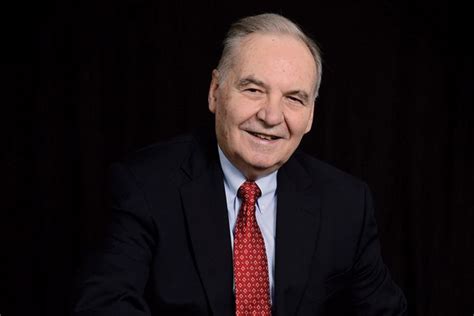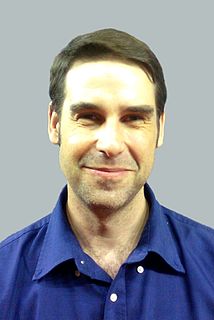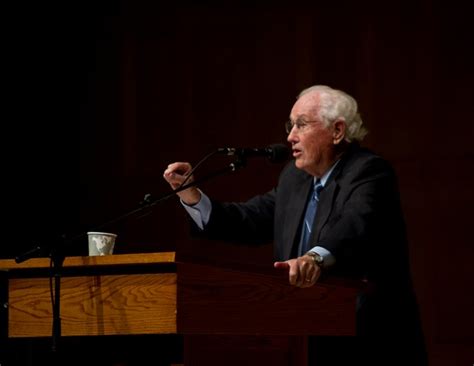A Quote by Norman Geisler
For some, the belief in a Young Earth seems to be based on a kind of intuition or faith in what they believe an omnipotent God should do. It reasons that if God is all powerful, then certainly He would not have taken millions of years to make the earth.
Related Quotes
There is no logical reason to believe in God. There are emotional reasons, certainly, but I cannot have faith that nothing is something simply because it would be reassuring. I can no more believe in God than I can believe an invisible monkey lives in my ass; however, I would believe in both if they could be scientifically proven.
The belief in God is not therefore based on the perception of design in nature. Belief in design in nature is based upon the belief in God. Things are as they are whether there is a God or not. Logically, to believe in design one must start with God. He, or it, is not a conclusion but a datum. You may begin by assuming a creator, and then say he did this or that; but you cannot logically say that because certain things exist, therefore there is a God who made them. God is an assumption, not a conclusion. And it is an assumption that explains nothing.
Some few, and I am one of them, even wish to God, though at the loss of millions of lives, that the North would proclaim a crusade against slavery. In the long-run, a million horrid deaths would be amply repaid in the cause of humanity. Great God! how I should like to see the greatest curse on earth - slavery - abolished!
A Christian should know that God is a Creator, that God is an entity that is all-powerful and all knowledgeable, God is everywhere and God is an entity filled with grace, love, compassion and forgiveness, that Jesus is the son of God and Jesus came on earth to explain to people in a very revolutionary way the nature of God, that God was not a stern judge who was keeping track of 600 or so rules and regulations that you had to keep in order to be acceptable to God.
What do you conceive God to be like? Some would say to believe at all in a personal God requires a giant leap of faith - but I am convinced that belief in God is a far more reasonable position than atheism. Nature, the personal experience of literally billions of people, and something innate in the heart of man all testify to the existence of God.
Our time on earth and our energy, intelligence, opportunities, relationships, and resources are all gifts from God that he has entrusted to our care and management. We are stewards of whatever God gives us. This concept of stewardship begins with the recognition that God is the owner of everything and everyone on earth. ... We never actually own anything during our brief stay on earth. God just loans the earth to us while we're here. It was God's property before you arrived, and God will loan it to someone else after you die.
Deep, solemn optimism, it seems to me, should spring from this firm belief in the presence of God in the individual; not a remote, unapproachable governor of the universe, but a God who is very near every one of us, who is present not only in earth, sea and sky, but also in every pure and noble impulse of our hearts.
Religion becomes a matter of belief, and belief acts as a limitation on the mind; and the mind then is never free. But it is only in freedom that you can find out what is true, what is God, not through any belief; because your belief projects what you think God ought to be, what you think ought to be true. If you believe God is love, God is good, God is this or that, your very belief prevents you from understanding what is God, what is true.
If you believe in a higher power or if you believe in God, then I would suggest that you go to God and see if you can find some solutions. If you don't believe in God, then try to be as honest with yourself as you possibly can... When I've chosen the light of God or self-honesty, my own misery has brought me to a solution.
We are compelled by the theory of God's already achieved perfection to make Him a devil as well as a god, because of the existenceof evil. The god of love, if omnipotent and omniscient, must be the god of cancer and epilepsy as well.... Whoever admits that anything living is evil must either believe that God is malignantly capable of creating evil, or else believe that God has made many mistakes in His attempts to make a perfect being.






































